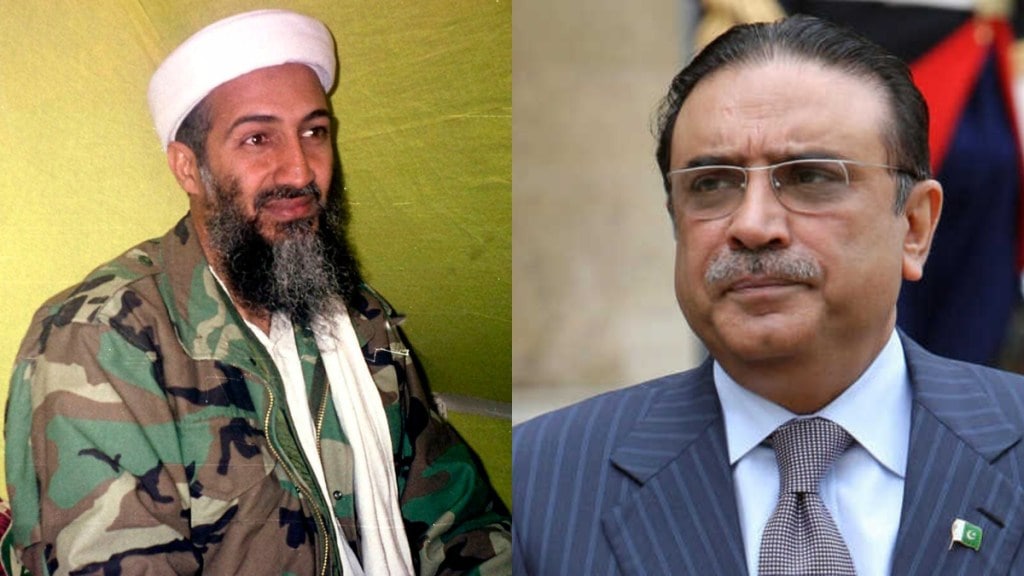Over 14 years ago, on May 2, 2011, the world awoke to the stunning news that al-Qaeda chief Osama bin Laden had been killed in a secret US Navy SEAL raid inside Pakistan. The revelation that the world’s most wanted terrorist had been living for years in Abbottabad, a garrison town barely a stone’s throw from Pakistan’s premier military academy, sent shockwaves through the world.
A recently released book by Farhatullah Babar, close aide and spokesperson to president Asif Ali Zardari, now offers a rare glimpse into the humiliation, confusion, and paralysis that gripped Pakistan’s leadership in the immediate aftermath.
But for Pakistan, the world’s discovery that Bin Laden had been living in a fortified compound under the Army’s nose triggered what the insider later described as a moment of “shock, confusion and paralysis”.
What the book reveals?
A new book by Farhatullah Babar, close aide and spokesperson to then-President Asif Ali Zardari, sheds light on the deep humiliation Pakistan faced in the raid’s aftermath. ‘The Zardari Presidency: Now It Must Be Told’, published by Rupa, devotes fifty pages to the Abbottabad episode, documenting the extraordinary political, military and diplomatic fallout.
According to Babar, the episode was particularly bitter because it coincided with squabbles between Zardari’s Pakistan People’s Party (PPP) and its coalition partner, the Pakistan Muslim League-Q. As politicians wrangled over power-sharing, the defenders of the state were oblivious to American helicopters flying into the country’s heart.
Pakistan’s humiliation
Within hours of the raid, Zardari convened a 6.30 am meeting with Foreign Minister Hina Rabbani Khar, Foreign Secretary Salman Bashir and Babar himself. For a decade, Pakistan had flatly denied any knowledge of Bin Laden’s whereabouts. Now, it had been caught out.
Babar told Zardari that the country was left with only two possible explanations, “Complicit or sheer incompetence, nothing else… an inquiry must be ordered immediately.”
Yet, as Babar recounts, Pakistan was caught between a rock and a hard place. It could not claim credit for the American operation without admitting to collusion, nor could it acknowledge the monumental failure of its military and intelligence agencies.
The official response took fourteen hours to materialise, with a press release that attempted to frame the raid as the result of intelligence-sharing with the US. Babar describes it as “hollow and unconvincing”, adding that Pakistan’s “web of lies and deceit had been exposed”.
“The realisation that the raid was unfolding as leaders quarrelled while the defenders remained unaware was deeply unsettling, evoking feelings of embarrassment, despair and fear,” Babar recalls.
Calls for accountability ignored by Pakistan?
Babar writes that he viewed the crisis as an opportunity to overhaul Pakistan’s intelligence apparatus. Zardari, however, resisted. The President argued for an inquiry commission, but “not with a view to punish anyone”. According to Babar, a “foreign country” even advised Zardari not to take punitive action against military generals.
Ultimately, the government retreated. “There would be no investigations, accountability, or restructuring of the intelligence apparatus in the wake of the OBL fiasco,” Babar concludes. Civilian leaders lacked the will, the military sought to protect its pride, and foreign allies feared destabilisation. The chance for reform was squandered.
Islamabad-Washington diplomatic damage control
Pakistan’s Foreign Office was left to manage the fallout. Visits by senior US officials, including Secretary of State Hillary Clinton and Senator John Kerry, soon followed. Islamabad sought assurances that Abbottabad would not be treated as a precedent for unilateral US strikes. Washington refused to oblige.
The book discloses further details of American intelligence penetration, including knowledge of the contractor who built Bin Laden’s hideout. It also notes that CIA officials met Bin Laden’s widows, who remained in the custody of Pakistani investigators after the raid.
Babar laments that the Osama episode became a missed opportunity for Pakistan. Rather than reforming intelligence structures or restoring public trust, the government and military chose evasion. In the process, Pakistan’s image as a partner in the fight against terrorism suffered irreparable harm.
For many in Pakistan and abroad, the episode crystallised two unflattering perceptions: either the state had been complicit in sheltering the world’s most notorious terrorist, or it had been dangerously incompetent.
More than fourteen years later, Abbottabad still casts a shadow. The revelations in Babar’s book shows how Pakistan’s leadership struggled to reconcile domestic fragility, military dominance, and international pressure in the face of a historic humiliation.

